
Find Help
More Items From Ergsy search
-
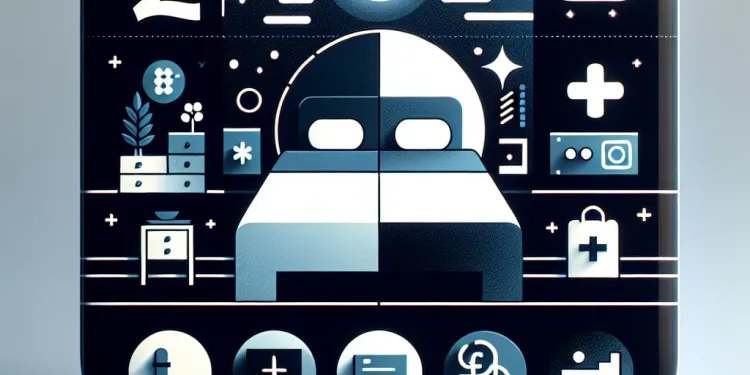
What treatments are available for sleep apnea?
Relevance: 100%
-
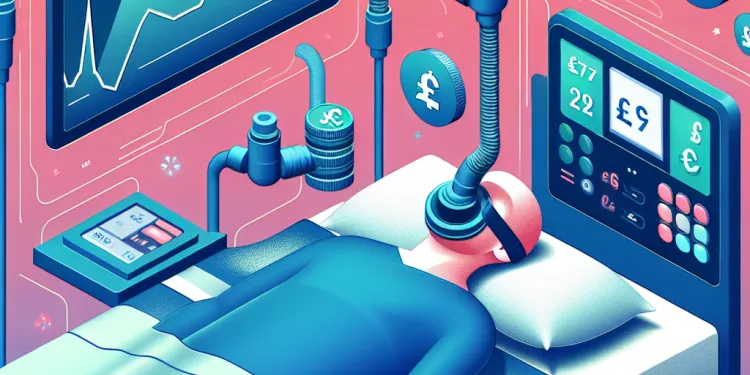
Is CPAP the only treatment for sleep apnea?
Relevance: 100%
-
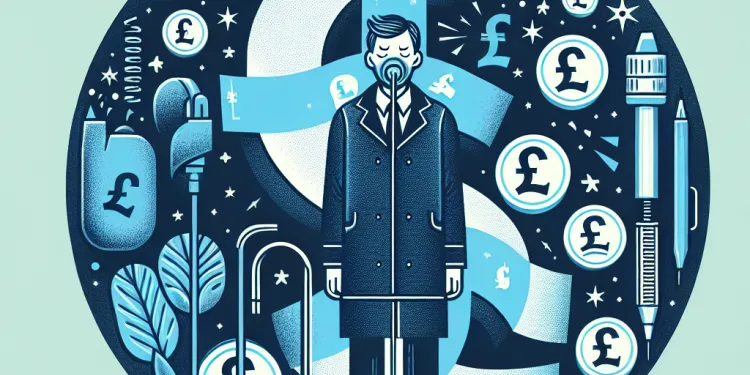
What is sleep apnoea?
Relevance: 94%
-

What is sleep apnea?
Relevance: 93%
-
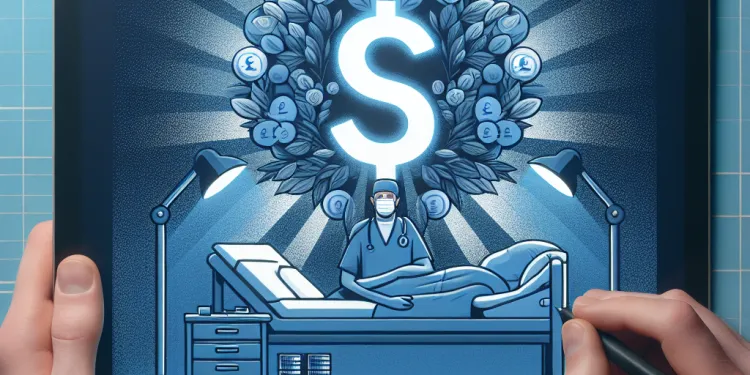
Can sleep apnea be cured?
Relevance: 89%
-
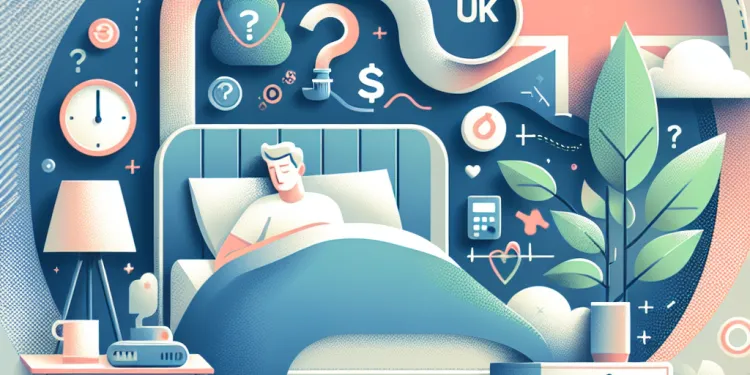
How common is sleep apnea?
Relevance: 88%
-
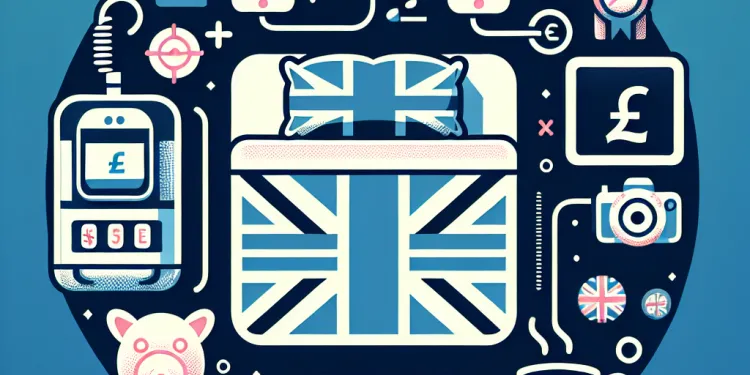
What are the main types of sleep apnea?
Relevance: 87%
-
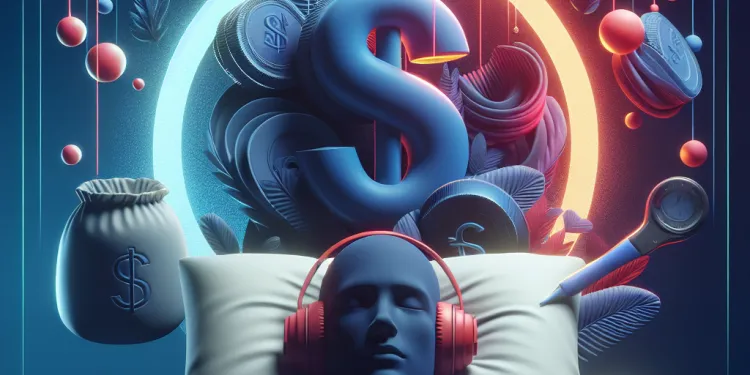
Why is sleep apnea dangerous?
Relevance: 86%
-
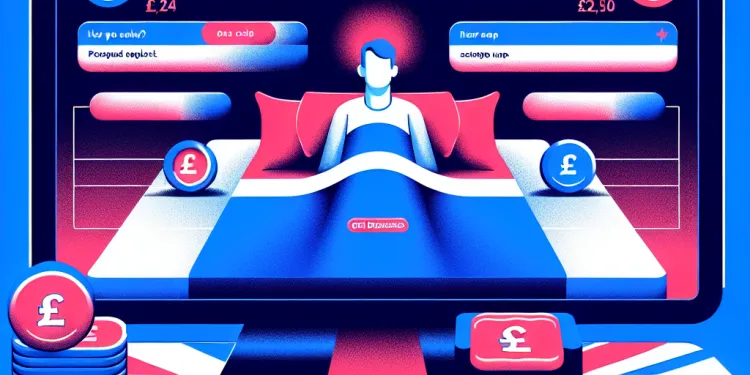
How is sleep apnea diagnosed?
Relevance: 86%
-
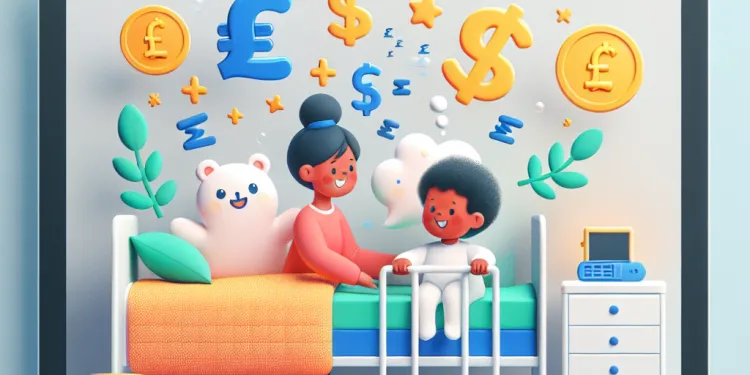
Can children have sleep apnea?
Relevance: 86%
-

What is complex sleep apnea syndrome?
Relevance: 86%
-
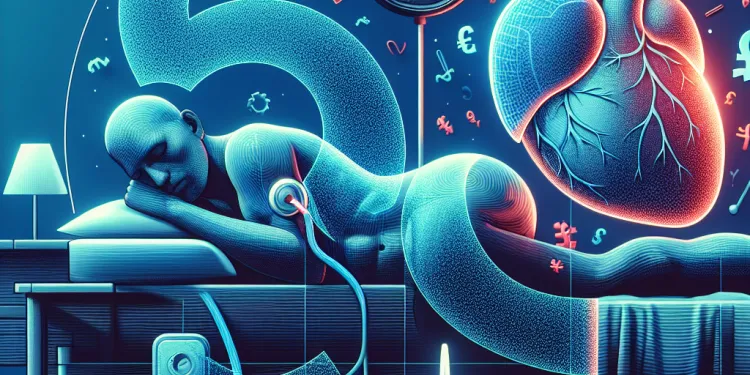
What is complex sleep apnea syndrome?
Relevance: 86%
-
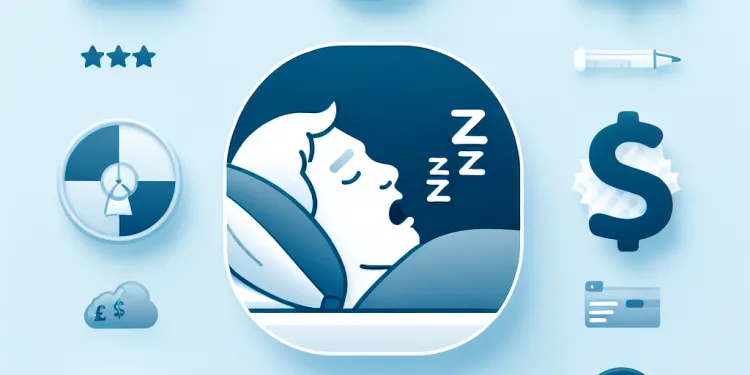
Is snoring always a sign of sleep apnea?
Relevance: 84%
-

Does sleep apnea occur only in adults?
Relevance: 83%
-
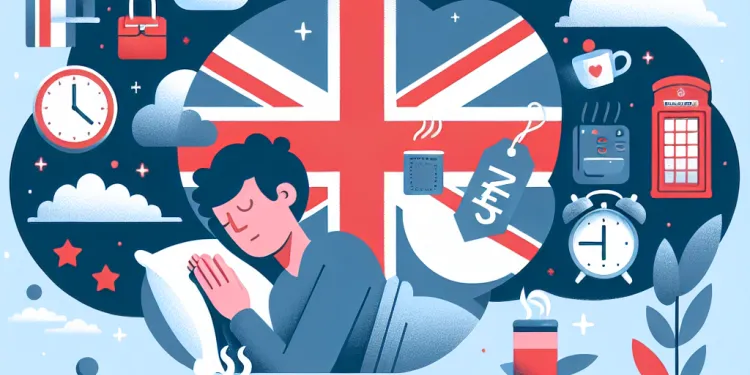
What are common symptoms of sleep apnea?
Relevance: 83%
-
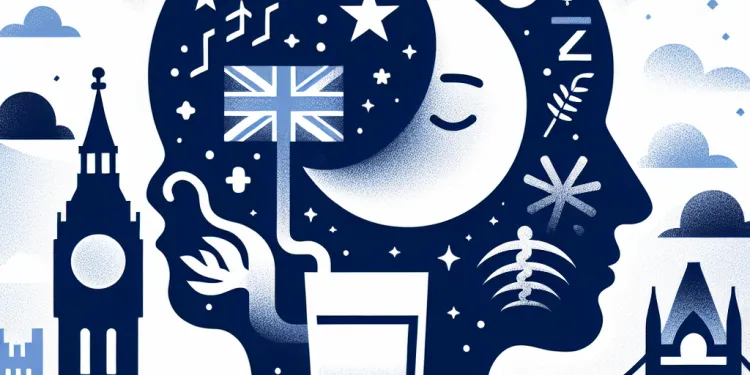
Can alcohol worsen sleep apnea?
Relevance: 82%
-

What should I do if I suspect I have sleep apnea?
Relevance: 82%
-
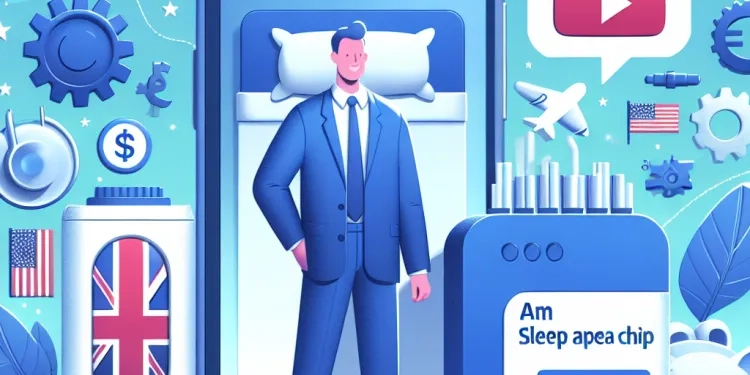
Am I eligible to try the new sleep apnea chip?
Relevance: 82%
-
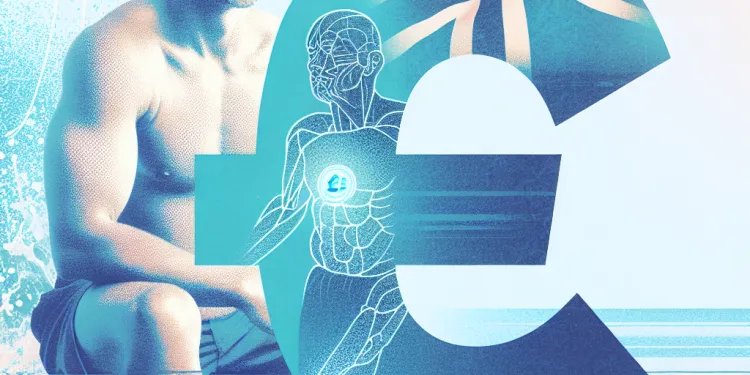
Can weight loss improve sleep apnea?
Relevance: 82%
-

What causes obstructive sleep apnea?
Relevance: 81%
-
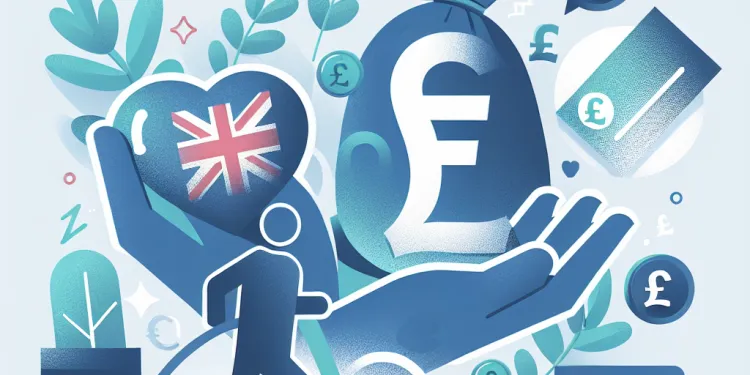
What are risk factors for developing sleep apnea?
Relevance: 80%
-

How does the new Sleep Apnea Chip work?
Relevance: 78%
-

What lifestyle changes can help manage sleep apnea?
Relevance: 75%
-
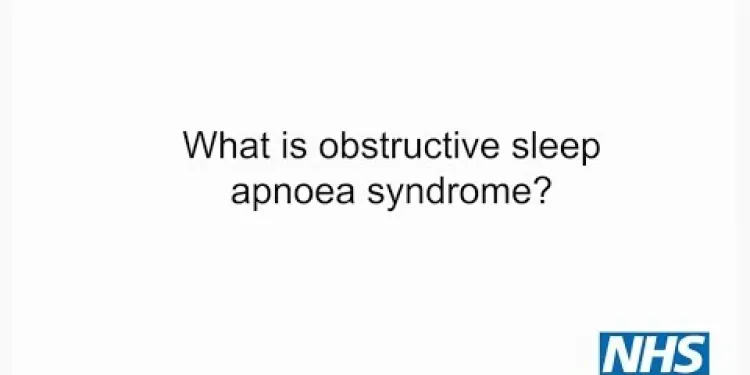
Introduction to obstructive sleep apnoea
Relevance: 65%
-
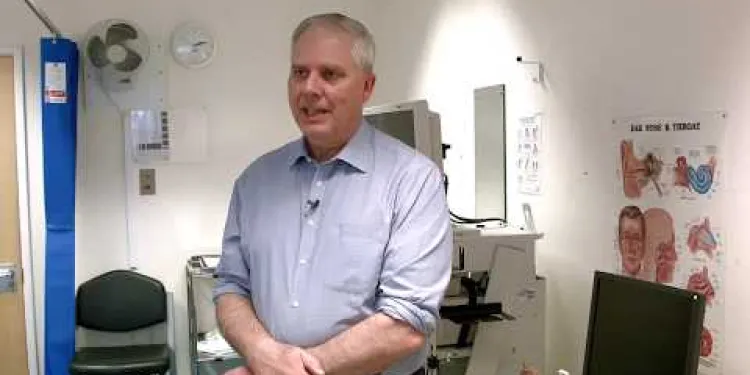
Evidence-Based Interventions: snoring surgery in the absence of Obstructive Sleep Apnoea (OSA)
Relevance: 60%
-
What is sleep apnoea?
Relevance: 44%
-

How does central sleep apnea differ from obstructive sleep apnea?
Relevance: 40%
-

How does sleep quality relate to menopause symptoms?
Relevance: 37%
-
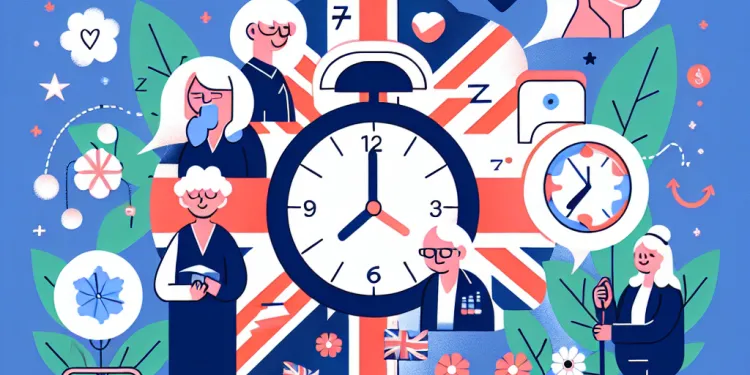
The Importance of Sleep for All Ages
Relevance: 37%
-
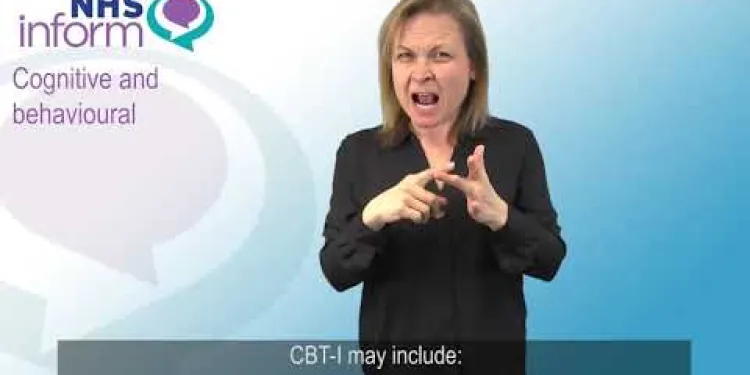
BSL - Treatments for insomnia
Relevance: 36%
-
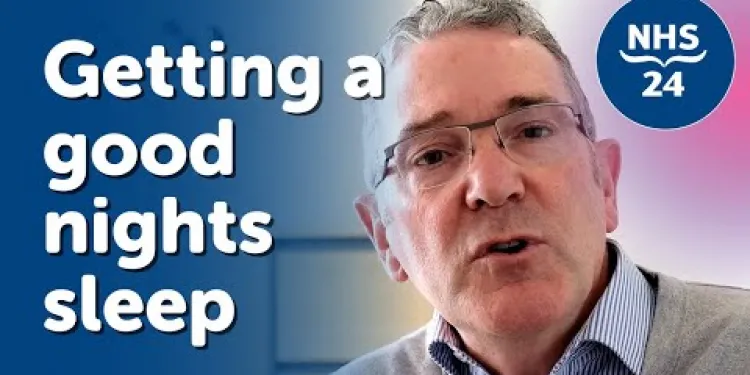
Top Tips to Help You Get a Good Nights Sleep
Relevance: 36%
-
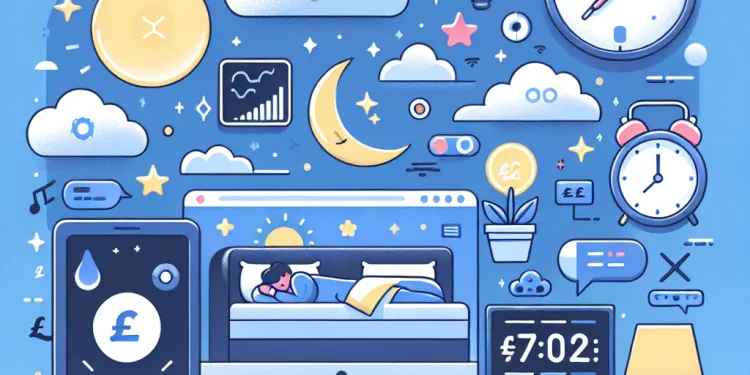
Does screen time affect both sleep onset and sleep maintenance?
Relevance: 34%
-
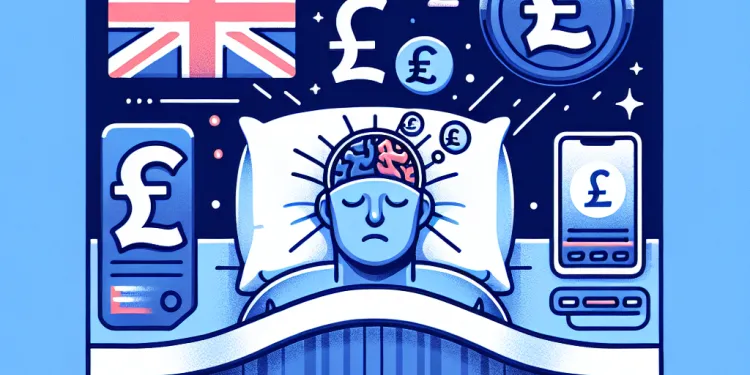
Is it safe to sleep after a concussion?
Relevance: 34%
-
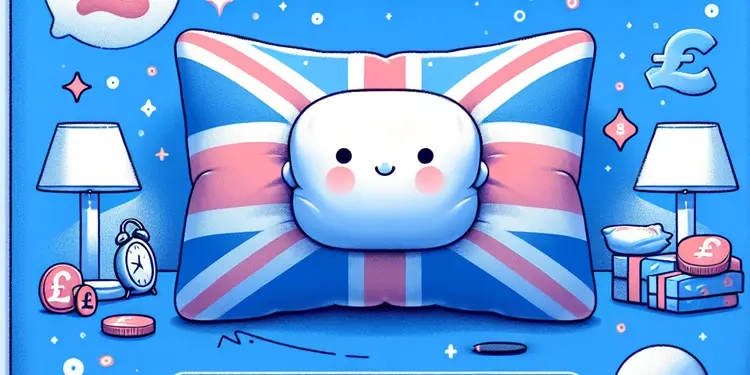
Are baby sleep pillows safe?
Relevance: 33%
-
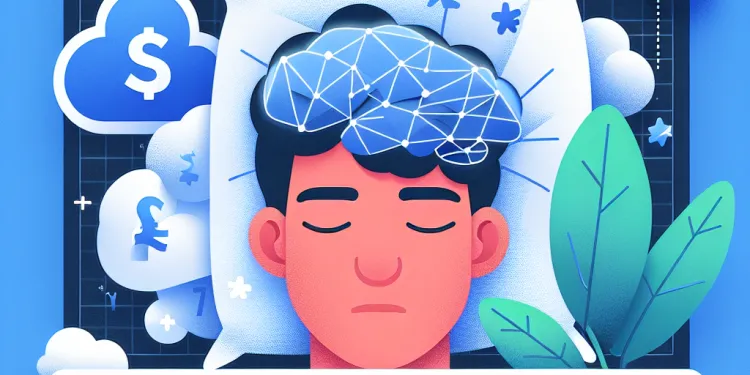
Is it safe to sleep after a concussion?
Relevance: 32%
-
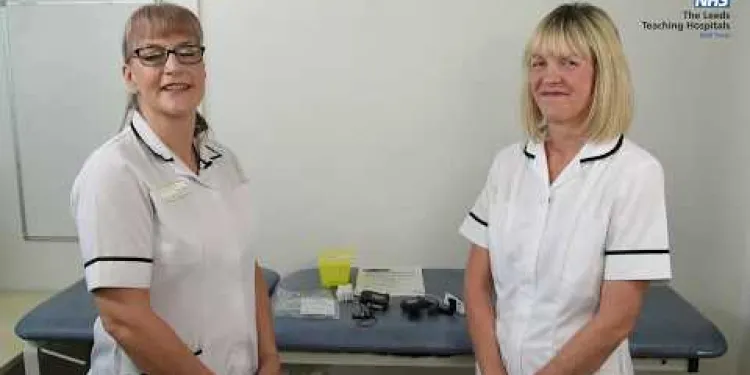
Instructions for setting up your home sleep study
Relevance: 32%
-

Is it okay to use a baby sleep positioner?
Relevance: 32%
-
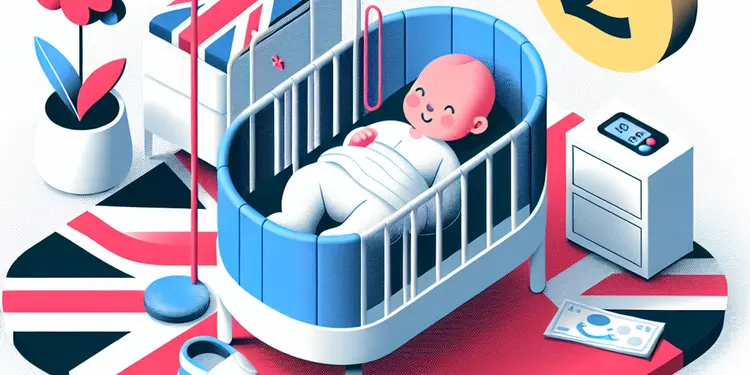
What is the safest sleep environment for an infant?
Relevance: 32%
-
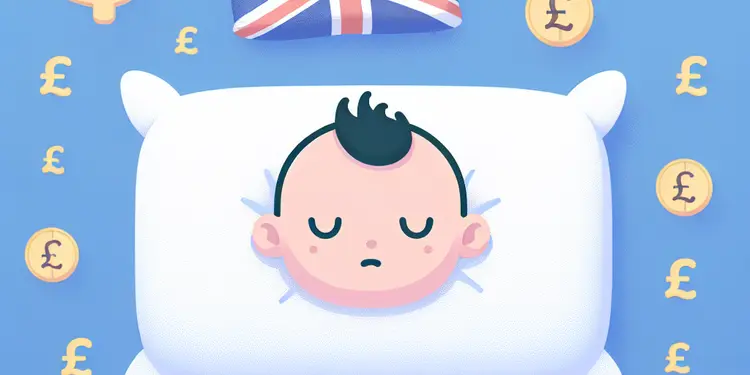
Can baby sleep pillows help with reflux issues?
Relevance: 31%
-
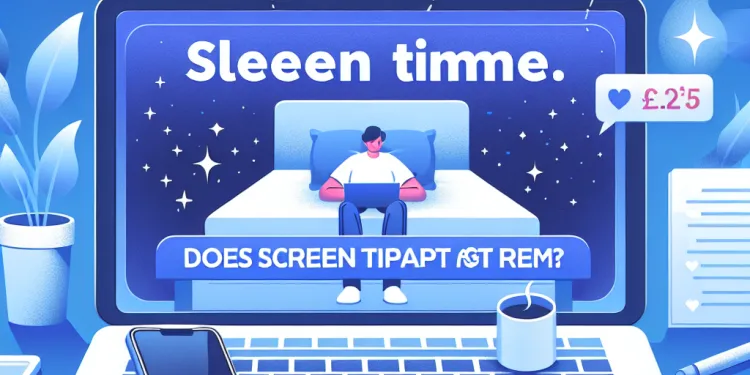
Does screen time impact REM sleep?
Relevance: 31%
Understanding Sleep Apnea
Sleep apnea is a common condition where breathing stops and starts during sleep. It can lead to disrupted sleep and other health complications if untreated. In the UK, several treatment options are available, ranging from lifestyle changes to medical interventions.
Lifestyle Changes
Simple lifestyle changes can significantly impact the management of sleep apnea. For individuals who are overweight, weight loss can reduce the severity of symptoms. Regular exercise can also help improve sleep quality. Avoiding alcohol and medications that relax the muscles of the throat can prevent airway obstruction during sleep. Establishing a regular sleep schedule can also be beneficial.
Continuous Positive Airway Pressure (CPAP)
The most common treatment for moderate to severe sleep apnea is the use of a continuous positive airway pressure (CPAP) machine. This device delivers air pressure through a mask while you sleep, keeping the airways open. CPAP is highly effective if used consistently, though some may find the mask uncomfortable at first.
Mouthpieces and Oral Appliances
Mouthpieces, or oral appliances, are another option for treating sleep apnea. These devices are designed to keep the throat open by holding the jaw in a forward position or by preventing the tongue from blocking the airway. They are usually prescribed by a dentist with special training in dental sleep medicine. Oral appliances can be an alternative for those who find CPAP intolerable.
Surgery
In cases where other treatments aren't successful, surgery may be considered. Surgical options aim to remove or shrink excess tissue in the throat, correct structural problems, or stimulate muscles to keep the airways open. Procedures include Uvulopalatopharyngoplasty (UPPP), the removal of tissue from the rear of your mouth and top of the throat, and somnoplasty, which uses radiofrequency energy to reduce tissue size.
Positional Therapy
Some people experience sleep apnea primarily when sleeping on their back. Positional therapy involves training the body to sleep in a different position, usually on the side. Special devices can be used, such as a vest that makes it uncomfortable to sleep on one's back, thereby encouraging side-sleeping.
Adaptive Servo-Ventilation (ASV)
For those with complex sleep apnea or central sleep apnea, adaptive servo-ventilation (ASV) may be recommended. ASV is a newer airflow device that adjusts the pressure during sleep to normalise breathing patterns. It continuously monitors breathing patterns and adapts the air pressure as needed.
Consultation with Healthcare Professionals
UK residents with symptoms of sleep apnea should consult with their GP. A referral to a sleep specialist may be necessary to identify the most appropriate treatment based on the individual's circumstances. Proper diagnosis and treatment can significantly improve sleep quality and overall health.
What is Sleep Apnea?
Sleep apnea is when you stop and start breathing while you sleep. This can disturb your sleep and cause health issues. In the UK, there are several ways to treat it, like changing your habits or using special devices.
Changing Your Habits
Simple changes can help with sleep apnea. If you are overweight, losing weight can make it better. Exercising regularly can help too. Avoid alcohol and some medicines before bed because they relax your throat, which can block your breathing. A regular sleep routine is also good.
CPAP Machine
A CPAP machine is often used for moderate to severe sleep apnea. It has a mask that gives you air while you sleep to keep your throat open. Some people find the mask uncomfortable, but it works well if used every night.
Mouthpieces
Mouthpieces can help with sleep apnea. They keep your throat open by holding your jaw forward or stopping your tongue from blocking your airway. Dentists with special training can provide these. They are good for people who do not like CPAP.
Surgery
If other treatments don’t work, surgery might help. It removes or shrinks tissue in your throat to keep it open. Options include removing tissue from the back of the mouth or using radio waves to make tissues smaller.
Changing Sleep Position
Some people have sleep apnea mainly when they sleep on their back. Changing your sleep position can help. You can use special devices to encourage sleeping on your side instead.
ASV Machine
For complex cases, an ASV machine might be used. This machine monitors your breathing and adjusts air pressure to help you breathe normally while sleeping.
Talk to a Doctor
If you live in the UK and think you have sleep apnea, talk to your doctor. They might send you to a sleep specialist. The right treatment can make you sleep better and be healthier.
Frequently Asked Questions
What is CPAP therapy for sleep apnea?
CPAP (Continuous Positive Airway Pressure) therapy involves a machine that uses mild air pressure to keep the airways open. It's the most common and effective treatment for obstructive sleep apnea.
How does a BiPAP machine differ from CPAP in treating sleep apnea?
BiPAP (Bilevel Positive Airway Pressure) delivers two different pressure settings for inhaling and exhaling. It may be recommended if CPAP is not effective or comfortable for a patient.
Are there any lifestyle changes that can help manage sleep apnea?
Yes, lifestyle changes such as losing weight, avoiding alcohol and tobacco, and sleeping on your side can help reduce symptoms of sleep apnea.
What role do oral appliances play in treating sleep apnea?
Oral appliances are devices fitted by a dentist to reposition the lower jaw forward, which can help keep the airway open during sleep.
Can surgery be an option for treating sleep apnea?
Surgery may be considered when other treatments are not effective. Options include removing tissue from the throat, repositioning the jaw, or implanting devices to keep the airway open.
How effective are positional therapy devices for sleep apnea?
Positional therapy involves training a person to sleep in a position that reduces sleep apnea episodes. It's more suitable for cases where apnea is worse when lying on the back.
What is Inspire therapy for sleep apnea?
Inspire therapy involves a surgically implanted device that stimulates the hypoglossal nerve, which controls tongue movement, to keep the airway open during sleep.
Can weight loss improve sleep apnea?
Yes, weight loss can significantly improve or even eliminate symptoms of sleep apnea in overweight individuals, as excess weight can contribute to airway obstruction.
Do nasal decongestants help with sleep apnea?
Nasal decongestants or sprays might provide temporary relief for mild sleep apnea symptoms, especially related to nasal congestion, but are not a long-term solution.
How might changing sleep hygiene impact sleep apnea?
Improving sleep hygiene by establishing a regular sleep schedule, creating a restful environment, and avoiding stimulants can complement other treatments but won't cure sleep apnea on its own.
Can acupuncture be used to treat sleep apnea?
Some studies suggest acupuncture might help reduce sleep apnea symptoms, but more research is needed. It's usually considered a complementary treatment, not a primary one.
What is the role of myofunctional therapy in sleep apnea treatment?
Myofunctional therapy involves exercises to strengthen tongue and throat muscles. It may help reduce symptoms in combination with other treatments, particularly for mild cases.
Are there any new emerging treatments for sleep apnea?
Research is ongoing, with new treatments such as magnetic stimulation or advanced surgical options in development. However, these are not widely available yet.
Is it possible to treat sleep apnea with medication?
Currently, there are no medications approved specifically for treating obstructive sleep apnea, though some may be used to manage related symptoms or conditions.
How does weight management therapy help with sleep apnea?
Weight management therapy focuses on reducing body weight to help alleviate the physical obstruction in the airway that contributes to sleep apnea.
What lifestyle or dietary changes can assist with sleep apnea management?
Dietary changes to promote weight loss and overall health, reducing alcohol and caffeine intake, and ensuring adequate hydration can support sleep apnea treatment.
How does atrial fibrillation treatment affect sleep apnea?
Treating atrial fibrillation might improve sleep apnea symptoms since both conditions are interconnected. Managing heart health can also reduce associated risks.
What is the importance of avoiding alcohol for sleep apnea patients?
Alcohol relaxes the muscles in the throat, which can worsen sleep apnea by causing more airway obstruction.
Are over-the-counter snoring aids effective for sleep apnea?
Most OTC snoring aids are not effective for sleep apnea as they don't address the root cause of the condition—airway obstruction during sleep.
Can yoga or breathing exercises assist with sleep apnea symptoms?
Yoga and breathing exercises can improve respiratory strength and oxygen flow, potentially reducing symptoms, but they should be used alongside other treatments.
What is CPAP for sleep problems?
CPAP helps people who have trouble breathing when they sleep.
CPAP is a machine with a mask that you wear on your nose or mouth.
The machine gently blows air to help you breathe better while you sleep.
If you have a hard time reading this, you can ask someone for help or use a tool that reads words out loud. Listening to short videos about CPAP can also help you learn more.
CPAP stands for Continuous Positive Airway Pressure. It's a machine that helps you breathe while you sleep. It blows gentle air to keep your throat open. This helps people who stop breathing during sleep (sleep apnea).
What is the difference between a BiPAP machine and a CPAP machine for helping with sleep apnea?
A BiPAP machine and a CPAP machine are both used to help people breathe during sleep. But they are a bit different:
- CPAP Machine: This machine gives air at one steady pressure.
- BiPAP Machine: This machine gives air at two different pressures. One for when you breathe in and a lower one for when you breathe out.
If you need help reading or understanding, you can:
- Ask someone to read it with you.
- Use a text-to-speech tool that reads text out loud.
BiPAP is a machine that helps people breathe. It gives two kinds of air pressure: one for breathing in and one for breathing out. This machine might be a good choice if another machine, called CPAP, does not work well or feel good.
Can changing my daily habits help with sleep apnea?
Yes, small changes can help. Here are a few things you can try:
- Healthy Weight: Try to keep a healthy weight. Being too heavy can make sleep apnea worse.
- Exercise: Move your body every day. It helps you sleep better.
- Avoid Alcohol: Don't drink alcohol before bed. It can make sleep apnea worse.
- Sleep Position: Try sleeping on your side, not on your back.
- Good Sleep Routine: Go to bed at the same time every night and wake up at the same time every morning.
These changes might help you breathe better when you sleep. If you need help, ask a doctor or a friend. They can support you!
Yes, changing how you live can help with sleep apnea.
You can try losing weight, not drinking alcohol, and not smoking.
Sleeping on your side can also help you feel better.
How do oral appliances help with sleep apnea?
Oral appliances are special mouthpieces. They help people breathe better while sleeping. Doctors use them to treat sleep apnea, which is when a person stops breathing for short times during sleep.
Here's how oral appliances work:
- They keep the airway open by moving the jaw slightly forward.
- This helps stop the throat from closing up.
- It makes breathing easier during sleep.
If someone has sleep apnea, a dentist or doctor can make a special oral appliance just for them. It's important to use it every night.
Some helpful tools and tips:
- Use a timer to remember when to put in the oral appliance.
- Ask a family member to help if needed.
- Keep the mouthpiece clean by brushing it every day.
Mouth devices are tools that a dentist fits in your mouth. They move your bottom jaw forward to help you breathe better when you sleep.
Can an operation help with sleep apnea?
If other treatments do not work, doctors might think about surgery. This could mean taking out tissue from the throat, moving the jaw, or putting in devices to help keep the airways open.
To help understand this better, you can:
- Use pictures to see what the surgery looks like.
- Ask a doctor to explain it in simple words.
- Use tools like text-to-speech to listen to the information.
Do position therapy devices help with sleep apnea?
Positional therapy helps people sleep in a way that makes it easier to breathe. It is good for people who have more problems breathing when they sleep on their back.
What is Inspire treatment for sleep apnea?
Inspire is a treatment to help people who have sleep apnea. Sleep apnea is when you stop breathing for a short time while you sleep.
Inspire is a small device that goes inside your body. It helps you breathe better when you sleep so you can feel good when you wake up.
If Inspire might be a good choice for you, talk to your doctor. They can explain how it works and if it will help you. Remember to ask questions if you don't understand.
Using pictures, simple videos, or talking about it with someone can make it easier to understand. Your doctor can use these tools to help explain things too.
Inspire therapy uses a special device put in during surgery. This device helps the tongue move by sending signals to a nerve in your tongue. This helps keep your throat open when you sleep so you can breathe better.
Can losing weight help with sleep apnea?
When people lose weight, it can help them breathe better at night. This might make sleep apnea better.
If you want to lose weight, you can:
- Eat healthy food like fruits and vegetables.
- Do some exercise like walking or playing sports.
It is a good idea to talk to a doctor for more help.
Losing weight can help people who have trouble with sleep apnea. Sleep apnea is when you stop breathing for short times while you sleep. If you weigh too much, it can make this worse.
When you lose extra weight, it can help you breathe better at night. Sometimes, it can even make sleep apnea go away!
If reading is hard, try using tools like audiobooks or text-to-speech apps to hear the words. You can also ask someone you trust to read with you.
Do nose medicines help with sleep problems?
Some people use nasal decongestants (nose medicine) to help them breathe better at night. But these medicines might not fix sleep apnea, a condition where breathing stops and starts during sleep. It's important to talk to a doctor about the best treatment. Breathing machines, like CPAP, are often used for sleep apnea.
If you have trouble understanding, ask someone you trust for help or use apps that read text out loud.
Nasal sprays can help you breathe easier for a little while if you have a stuffy nose from sleep apnea. But they won't fix the problem forever.
How can better sleep habits help with sleep apnea?
Good sleep habits can help with sleep apnea. Sleep apnea is a problem where you stop breathing for short times while you sleep. It can make you feel very tired.
Here are some ways to have better sleep habits:
- Go to bed at the same time every night.
- Make your room dark and quiet.
- Do not use screens right before bed.
- Do not drink coffee or eat big meals before bed.
Using these tips can help you sleep better and feel less tired if you have sleep apnea.
To sleep better, try these things:
- Go to bed and wake up at the same time every day.
- Make your bedroom calm and comfy for sleep.
- Stay away from things like coffee or energy drinks before bed.
These can help you sleep better but won't fix sleep apnea by themselves. You might still need other treatments too.
Can acupuncture help with sleep apnea?
Sleep apnea is when you stop breathing for short times while you sleep. It can make you tired during the day.
Acupuncture uses tiny needles to help your body feel better. Some people say acupuncture might help with sleep apnea, but we need more research to know for sure.
If you have sleep apnea, talk to your doctor. They can tell you about treatments that might help. You can also try things like sleeping on your side or using a special pillow.
Some people think acupuncture can help with sleep problems, like sleep apnea. But we need to study it more to be sure. Acupuncture is usually used with other treatments, not by itself.
How does myofunctional therapy help with sleep apnea?
Myofunctional therapy is a way to help people who have problems sleeping well at night. It teaches exercises for the mouth and throat muscles.
These exercises can make the muscles stronger. When these muscles are stronger, it can help you breathe better when you sleep.
Breathing better can help people with sleep apnea sleep well. Sleep apnea makes it hard to breathe well when you are sleeping.
Tools like pictures or videos of exercises can help you learn how to do them. A therapist can also show you how.
Myofunctional therapy is when you do exercises to make the muscles in your tongue and throat stronger. It can help make some problems better, especially when you use it with other treatments for small problems.
Are there any new ways to help with sleep apnea?
Sleep apnea can make it hard to breathe when you sleep. There are new treatments being tested to help with this. Some new ways might help people sleep better. Here are a few things that might help:
- Ask your doctor if there are new ideas or tools to help sleep apnea.
- You can try using a special mask that helps air move better when you sleep.
- Some people use machines called CPAP to help them breathe at night.
- There might be new medicines being tested that your doctor can tell you about.
If you have sleep apnea, talk to your doctor about what could work for you. They can tell you about the best options to help you feel better.
Scientists are working hard to find new ways to help. Some new ideas include using magnets or special surgeries. But right now, these new ways are not ready for everyone to use.
Can medicine help fix sleep apnea?
Right now, there are no special medicines just for treating obstructive sleep apnea. But, some medicines can help with symptoms or other related problems.
How can managing weight help with sleep problems?
Sometimes, people who have trouble sleeping, like sleep apnea, can feel better if they watch their weight.
Losing extra weight might make breathing easier at night.
Talk to your doctor or nurse about ways to eat and exercise that can help you.
Using tools like meal plans and exercise videos can also be helpful.
Weight management therapy helps you lose weight. This can make it easier to breathe when you sleep. It can help people who have trouble breathing when they sleep.
What can help with sleep apnea?
Here are some tips to help with sleep apnea:
- Lose weight if needed. Being a healthy weight can help you breathe better.
- Avoid alcoholic drinks before bed. They can make sleep apnea worse.
- Try not to sleep on your back. Sleeping on your side can help with breathing.
- Stop smoking. It is good for your breathing and helps stop apnea.
- Keep a sleep routine. Go to bed and wake up at the same time every day.
If you need help, ask a doctor. They can give support and advice.
Changing what you eat can help you lose weight and be healthier. Eating better can also help with sleep problems like sleep apnea.
Try to drink less alcohol and less caffeine, like in coffee and tea. These can make sleep problems worse.
Make sure you drink enough water every day. Staying hydrated is good for your health and can help you sleep better.
If you need help with eating better, talk to a doctor or a dietitian. They can give you good advice.
How does treating atrial fibrillation help with sleep apnea?
Atrial fibrillation (often called AFib) is a really fast heartbeat. Sleep apnea is when you stop breathing for short times when you're sleeping.
When you treat AFib, it can help your heart beat better. This might also help with sleep apnea because your heart and breathing are connected.
If you have questions, you can ask your doctor. Tools like sleep tracking apps or devices can help you see how well you sleep. These can show you if treatments are helping.
Fixing problems with how the heart beats can help with breathing problems during sleep. This is because these two problems are connected. Taking care of the heart can also make you healthier in other ways.
Here are some things that might help:
- Talk to a doctor about heart health.
- Go to bed at the same time every night.
- Use a pillow that helps you breathe easier.
- Try breathing exercises before bedtime.
Why should people with sleep apnea not drink alcohol?
If you have sleep apnea, it's best not to drink alcohol. Alcohol can make your sleep problems worse. It relaxes your muscles too much, and this can make it harder to breathe when you sleep. Try using a bedtime routine to relax instead. You can listen to calm music or do deep breathing exercises before bed.
When you drink alcohol, it makes the muscles in your throat relax. This can make snoring worse because it blocks the airway when you sleep more.
Do store-bought snoring aids work for sleep apnea?
Sleep apnea is when you stop breathing for short times while sleeping. Snoring aids from stores might help with snoring, but they might not fix sleep apnea.
Ask a doctor about sleep apnea. They can help you find the right treatment. Using special sleep machines or seeing a sleep specialist might be better options.
Most over-the-counter (OTC) snoring aids do not work well for sleep apnea. This is because they do not fix the main problem. The main problem is that your airway gets blocked while you sleep.
Can yoga or breathing exercises help with sleep apnea problems?
Sleep apnea is when you stop breathing for a short time while you sleep.
Yoga and breathing exercises might help. They teach you how to breathe better.
Yoga helps you relax your body and mind.
Breathing exercises help you take slower and deeper breaths.
To try yoga or breathing exercises, you can:
- Watch videos online.
- Go to a yoga class.
- Use a breathing exercise app.
These things might make you feel better over time.
Yoga and breathing exercises can help you breathe better. They might make you feel better, but you should also use other medicines or treatments.
Useful Links
This website offers general information and is not a substitute for professional advice.
Always seek guidance from qualified professionals.
If you have any medical concerns or need urgent help, contact a healthcare professional or emergency services immediately.
- Ergsy carfully checks the information in the videos we provide here.
- Videos shown by Youtube after a video has completed, have NOT been reviewed by ERGSY.
- To view, click the arrow in centre of video.
- Most of the videos you find here will have subtitles and/or closed captions available.
- You may need to turn these on, and choose your preferred language.
- Go to the video you'd like to watch.
- If closed captions (CC) are available, settings will be visible on the bottom right of the video player.
- To turn on Captions, click settings .
- To turn off Captions, click settings again.
More Items From Ergsy search
-

What treatments are available for sleep apnea?
Relevance: 100%
-

Is CPAP the only treatment for sleep apnea?
Relevance: 100%
-

What is sleep apnoea?
Relevance: 94%
-

What is sleep apnea?
Relevance: 93%
-

Can sleep apnea be cured?
Relevance: 89%
-

How common is sleep apnea?
Relevance: 88%
-

What are the main types of sleep apnea?
Relevance: 87%
-

Why is sleep apnea dangerous?
Relevance: 86%
-

How is sleep apnea diagnosed?
Relevance: 86%
-

Can children have sleep apnea?
Relevance: 86%
-

What is complex sleep apnea syndrome?
Relevance: 86%
-

What is complex sleep apnea syndrome?
Relevance: 86%
-

Is snoring always a sign of sleep apnea?
Relevance: 84%
-

Does sleep apnea occur only in adults?
Relevance: 83%
-

What are common symptoms of sleep apnea?
Relevance: 83%
-

Can alcohol worsen sleep apnea?
Relevance: 82%
-

What should I do if I suspect I have sleep apnea?
Relevance: 82%
-

Am I eligible to try the new sleep apnea chip?
Relevance: 82%
-

Can weight loss improve sleep apnea?
Relevance: 82%
-

What causes obstructive sleep apnea?
Relevance: 81%
-

What are risk factors for developing sleep apnea?
Relevance: 80%
-

How does the new Sleep Apnea Chip work?
Relevance: 78%
-

What lifestyle changes can help manage sleep apnea?
Relevance: 75%
-

Introduction to obstructive sleep apnoea
Relevance: 65%
-

Evidence-Based Interventions: snoring surgery in the absence of Obstructive Sleep Apnoea (OSA)
Relevance: 60%
-
What is sleep apnoea?
Relevance: 44%
-

How does central sleep apnea differ from obstructive sleep apnea?
Relevance: 40%
-

How does sleep quality relate to menopause symptoms?
Relevance: 37%
-

The Importance of Sleep for All Ages
Relevance: 37%
-

BSL - Treatments for insomnia
Relevance: 36%
-

Top Tips to Help You Get a Good Nights Sleep
Relevance: 36%
-

Does screen time affect both sleep onset and sleep maintenance?
Relevance: 34%
-

Is it safe to sleep after a concussion?
Relevance: 34%
-

Are baby sleep pillows safe?
Relevance: 33%
-

Is it safe to sleep after a concussion?
Relevance: 32%
-

Instructions for setting up your home sleep study
Relevance: 32%
-

Is it okay to use a baby sleep positioner?
Relevance: 32%
-

What is the safest sleep environment for an infant?
Relevance: 32%
-

Can baby sleep pillows help with reflux issues?
Relevance: 31%
-

Does screen time impact REM sleep?
Relevance: 31%


